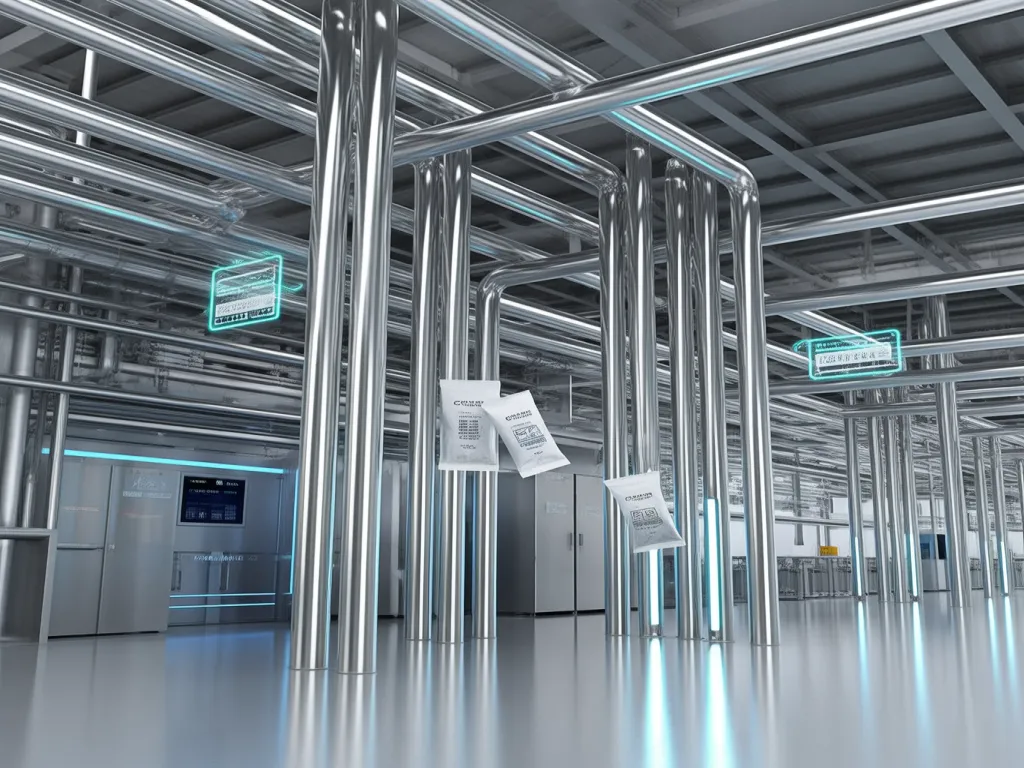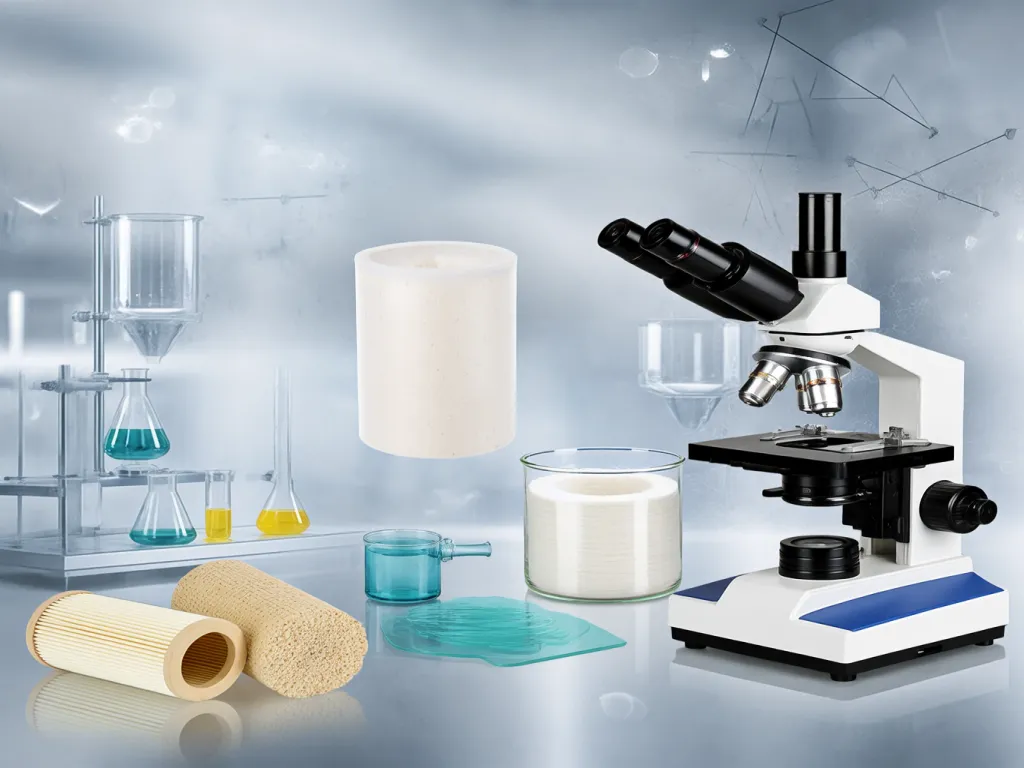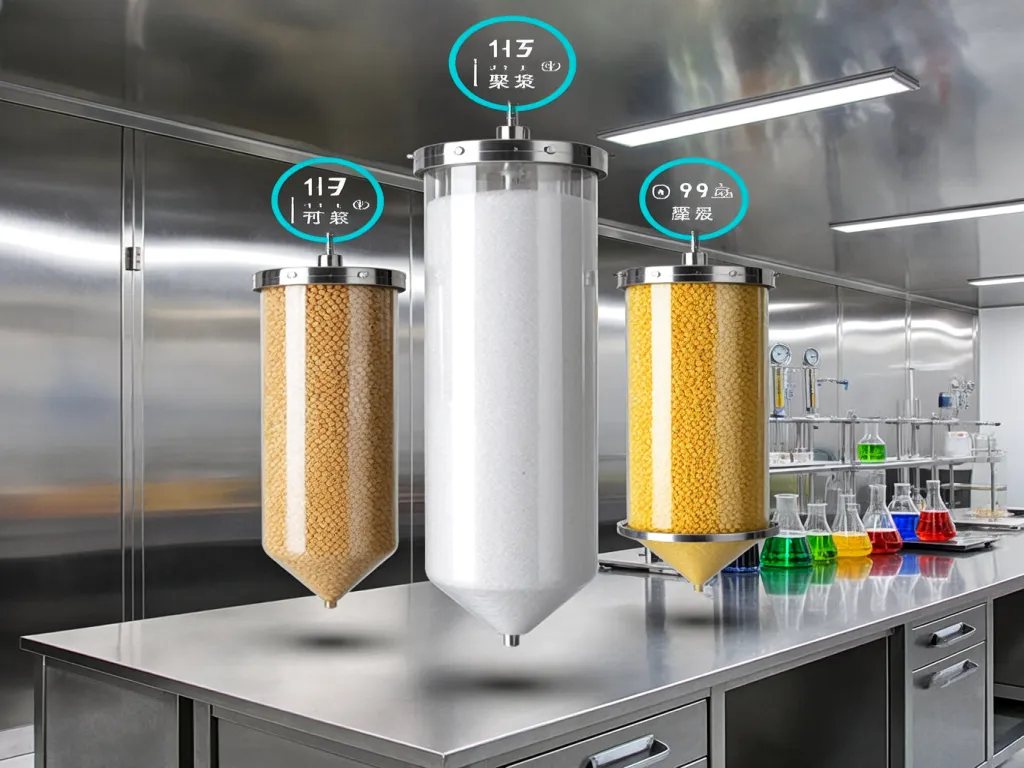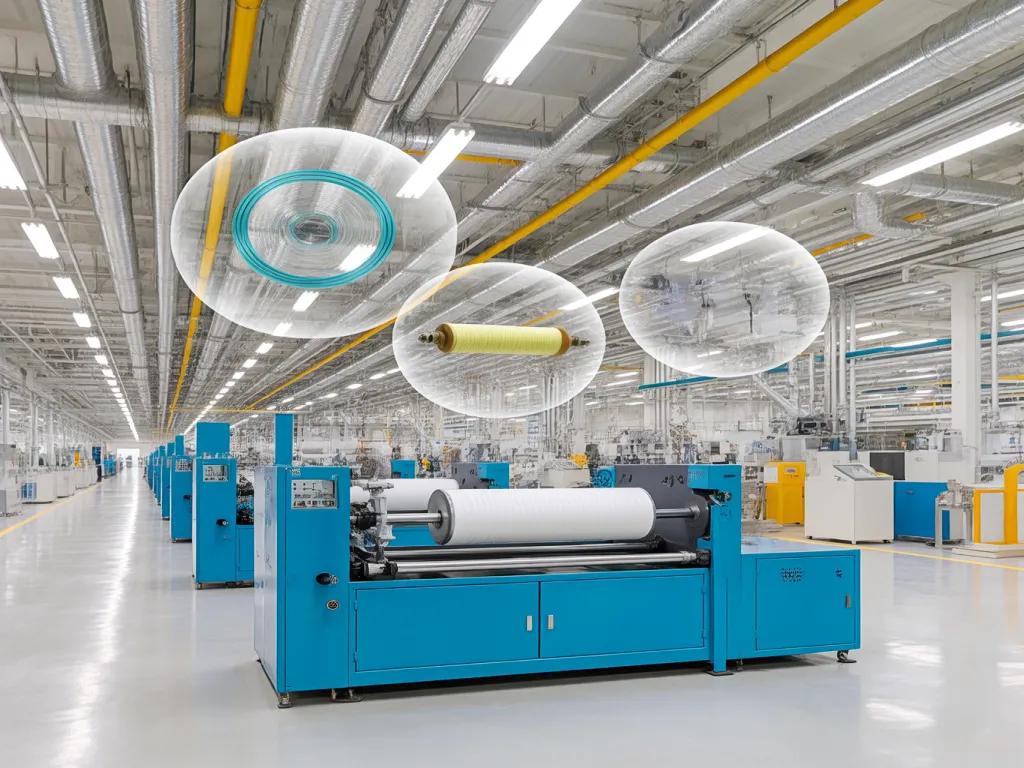Material Matters: Industrial Filter Bag Price Guide

When it comes to industrial filtration, the material of your filter bag isn’t just a detail—it’s the backbone of performance and cost. Whether you’re managing a factory’s air quality or refining chemical processes, understanding the industrial filter bag price range means more than just numbers; it’s about finding the sweet spot between durability and budget. So, how exactly do materials like polyester, polypropylene, and glass fiber influence both price and performance? Let’s break it down.

Common Industrial Filter Bag Materials and Their Characteristics
When it comes to industrial filter bags, the choice of material isn’t just about picking something off the shelf. It’s a critical decision that impacts everything from filtration efficiency to durability and, ultimately, the industrial filter bag price range you’ll encounter. Let’s dive into the most common materials used in industrial filter bags: polyester, polypropylene, and glass fiber, and see how each one stacks up in terms of performance and cost. For those seeking durable solutions tailored to specific dust collection needs, exploring our range of durable industrial filter bags can provide valuable insights into material selection.
Polyester Filter Bags: The All-Rounder
Polyester filter bags are the go-to choice for many industrial applications. Their high tensile strength ensures durability, while their fine fiber structure allows for efficient particulate capture. They’re also resistant to chemicals and moisture, making them suitable for a wide range of environments. When it comes to the industrial filter bag price range, polyester offers a good balance between cost and performance, making it a popular and cost-effective option. For applications requiring high efficiency and durability, consider our high-efficiency durable industrial filter bags.
Polypropylene Filter Bags: The Budget-Friendly Option
If cost is a major concern, polypropylene filter bags might be the answer. They’re cheaper than polyester and offer good chemical resistance, making them suitable for environments with acids, alkalis, or other corrosive substances. However, their lower tensile strength means they’re not as durable under heavy loads. In terms of filtration efficiency, they’re good but not as effective as polyester at capturing very fine particles. Still, for applications where budget is a priority, polypropylene provides a viable solution within the industrial filter bag price range. For customized budget-friendly solutions, explore our custom industrial filter bags.
Glass Fiber Filter Bags: The High-Performance Choice
For extreme conditions, glass fiber filter bags are the top performers. They can withstand high temperatures, making them ideal for incinerators, boilers, or cement kilns. Their exceptional filtration efficiency captures even the smallest particles, and their chemical resistance is unmatched. However, all this performance comes at a higher cost. Glass fiber filter bags are typically the most expensive option within the industrial filter bag price range, reflecting their superior capabilities. But for applications where performance is paramount, the investment is often worth it. For comprehensive solutions addressing both dust collection and liquid filtration, our high-efficiency industrial filter bags offer exceptional performance.

Material Determines Value: A Deep Dive into the Price Range of Industrial Filter Bags and Their Material Relationships
When it comes to industrial filter bags, the material isn’t just a component; it’s the cornerstone that dictates performance, durability, and ultimately, the price tag. Let’s embark on a journey through the most common materials used in industrial filter bags: polyester, polypropylene, and glass fiber, and see how their inherent properties influence not just functionality but also your wallet.
First up, polyester filter bags. Renowned for their versatility, polyester bags are the go-to for many industrial applications. They offer excellent resistance to both abrasion and chemicals, making them ideal for environments where durability is key. But how does this translate to the industrial filter bag price range? Well, polyester bags typically fall into the mid-range category. On average, you can expect to pay anywhere from $10 to $30 per bag, depending on the specific design and filtration requirements. For more durable and high-efficiency options, consider exploring our high-efficiency industrial filter bags. This price point reflects the balance between cost-effectiveness and robust performance, making polyester a popular choice among budget-conscious yet quality-aware buyers.
Next, we have polypropylene filter bags. If polyester is the versatile middle child, polypropylene is the cost-effective underdog. Lightweight and resistant to a wide array of chemicals, polypropylene bags are perfect for applications where moisture and chemical exposure are concerns, but extreme temperatures aren’t. The price? Here’s where things get interesting. Polypropylene bags often come in at the lower end of the spectrum, with prices ranging from $5 to $15 per bag. This affordability, coupled with decent performance, makes them a favorite for industries looking to maximize their filtration without breaking the bank. But remember, cheaper doesn’t always mean better, especially in harsh environments where polypropylene might not hold up as well as its pricier counterparts.
Now, let’s talk about glass fiber filter bags. These are the heavyweights of the filtration world, literally and figuratively. With exceptional heat resistance and the ability to capture even the finest particles, glass fiber bags are the gold standard in high-temperature and high-efficiency applications. Naturally, this superior performance comes at a premium. Glass fiber industrial filter bags can command prices upwards of $30 to $60 per bag, sometimes even more for specialized designs. The cost reflects not just the material’s rarity and processing complexity but also the unparalleled filtration capabilities it offers. For industries operating in extreme conditions, investing in glass fiber is often a no-brainer, despite the higher initial outlay.
So, how do these material costs impact the final product price? It’s simple: the more specialized and durable the material, the higher the production cost, which inevitably gets passed on to the consumer. But here’s the thing – it’s not just about the upfront cost. Choosing the right material based on your application can save you money in the long run by reducing downtime, maintenance costs, and even potential product losses due to inefficient filtration. Think about it: would you rather pay a little extra now for a filter bag that lasts twice as long and performs better, or keep replacing cheaper, less effective options every few months?
Polyester: The Versatile Middle Ground
Polyester filter bags strike a perfect balance between cost and performance. Their resistance to abrasion and chemicals makes them suitable for a wide range of industrial settings. The price range of $10 to $30 per bag reflects this versatility, offering a cost-effective solution without compromising on quality. For industries that require reliable filtration without the need for extreme temperature resistance, polyester is an excellent choice. If you’re looking for a durable solution tailored to dust collection, check out our durable industrial filter bags.
Polypropylene: The Budget-Friendly Option
Polypropylene filter bags are the go-to for those on a tighter budget. Their lightweight nature and chemical resistance make them ideal for applications where moisture and chemicals are present, but high temperatures are not a concern. With prices ranging from $5 to $15 per bag, polypropylene offers a cost-effective solution for basic filtration needs. However, it’s important to note that while they are cheaper, they may not perform as well in harsh environments compared to more expensive materials.
Glass Fiber: The Premium Choice
Glass fiber filter bags are the cream of the crop when it comes to industrial filtration. Their exceptional heat resistance and ability to capture fine particles make them indispensable in high-temperature and high-efficiency applications. The price range of $30 to $60 per bag, or even higher for specialized designs, reflects the superior performance and durability of glass fiber. For industries that cannot compromise on filtration quality, investing in glass fiber is a wise decision, despite the higher initial cost. For a custom solution tailored to your dust collection needs, explore our custom industrial filter bags.

How to Choose the Most Cost-Effective Industrial Filter Bag Material Based on Application Scenarios and Budget
When it comes to selecting industrial filter bags, the decision isn’t just about finding the cheapest option. It’s about understanding how different materials perform in specific environments and how that affects their price range. So, how do you balance cost, performance, and durability? Let’s break it down by application scenarios and budget constraints. First, let’s talk about high-temperature environments. If your operation involves extreme heat, like in cement kilns or steel mills, you’ll need a filter bag that can withstand those temperatures without melting or degrading. Glass fiber filter bags are a popular choice here. They can handle temperatures up to 500°F (260°C) and offer excellent chemical resistance. But what about the price? Glass fiber industrial filter bags typically fall into a higher price range, say $50 to $150 per bag, depending on size and specifications. For those seeking a high-efficiency, durable solution tailored to extreme conditions, glass fiber remains a top contender. Is there a more budget-friendly alternative? Yes, but with trade-offs. Polyimide filter bags, for example, can handle slightly lower temperatures (around 450°F/232°C) but are generally less expensive than glass fiber. They might cost between $30 and $80 per bag. The key is to assess whether the slight reduction in temperature resistance is acceptable for your application. Now, let’s shift to corrosive environments. If your process involves acids, alkalis, or other harsh chemicals, you’ll need a filter bag that won’t break down quickly. Polypropylene (PP) filter bags are a go-to for such scenarios. They’re resistant to most acids and alkalis and can handle temperatures up to 200°F (93°C). The price range for PP filter bags is relatively moderate, usually between $15 and $40 per bag. But what if your budget is tighter? Polyester (PET) filter bags might be a viable option. They offer decent chemical resistance, though not as robust as PP, and can handle temperatures up to 300°F (149°C). PET bags are often priced between $10 and $30 per bag, making them a cost-effective choice for less aggressive corrosive environments. Budget is another critical factor. If you’re working with a limited budget, you might be tempted to go for the cheapest option available. However, remember that a lower upfront cost doesn’t always mean long-term savings. Cheaper materials may wear out faster, leading to more frequent replacements and higher operational costs over time. For instance, if you’re operating in a mildly corrosive environment with moderate temperatures, a PET filter bag might be the most cost-effective choice. It offers a balance between performance and price, ensuring you don’t overspend while still getting reliable filtration. On the other hand, if your application demands high performance in extreme conditions, investing in a higher-priced material like glass fiber could save you money in the long run by reducing downtime and maintenance costs. Ultimately, the best approach is to evaluate your specific needs. Ask yourself: What are the maximum temperatures my filter bags will face? What chemicals are present in the environment? How often can I afford to replace the bags? By answering these questions, you can narrow down your options and find the material that offers the best balance of performance, durability, and cost. Remember, the goal isn’t just to find the cheapest filter bag but to find the one that provides the best value for your money. A slightly more expensive bag that lasts twice as long and performs better in your environment is often a smarter investment than a cheaper one that needs frequent replacement.
High-Temperature Environments: Glass Fiber vs. Alternatives
In high-temperature settings, glass fiber filter bags shine due to their exceptional heat resistance. However, their higher price range might push you to explore alternatives like polyimide. While polyimide bags are slightly less heat-resistant, they offer a more budget-friendly option without compromising too much on performance. For applications demanding both durability and cost-efficiency, consider exploring our range of durable industrial filter bag solutions. The decision here hinges on whether your application can tolerate the reduced temperature threshold of polyimide or if the superior heat resistance of glass fiber is non-negotiable.
Corrosive Environments: Polypropylene vs. Polyester
For corrosive environments, polypropylene filter bags are the gold standard, offering excellent chemical resistance. Yet, if your budget is a concern, polyester bags provide a decent alternative, especially in less aggressive settings. The trade-off is slightly reduced chemical resistance, but for many applications, this might be an acceptable compromise to achieve cost savings. For those seeking a balance between cost and chemical resilience, our durable custom solution for dust collection offers tailored options to meet your needs.
Budget Considerations: Balancing Cost and Performance
Budget constraints often lead buyers to prioritize cost over performance. However, this approach can backfire if cheaper materials fail prematurely, leading to higher replacement costs. Instead, focus on finding a material that meets your performance requirements at the lowest possible cost. This means evaluating the total cost of ownership, including replacement frequency and downtime, rather than just the initial purchase price. For those seeking high-efficiency filtration without compromising on durability, our high-efficiency solution for dust collection and liquid filtration offers a compelling blend of performance and cost-effectiveness.
Navigating the industrial filter bag price range is about striking a balance: you need a material that withstands your environment without breaking the bank. From polyester’s versatility to glass fiber’s heat resistance, each option carries a unique cost-benefit profile. Remember, the right choice isn’t just about upfront costs—it’s an investment in long-term efficiency and reliability. Ready to optimize your filtration setup? Dive deeper into material-specific guides or share this with peers facing the same decision. The path to cost-effective, high-performance filtration starts here—what’s your next move?

